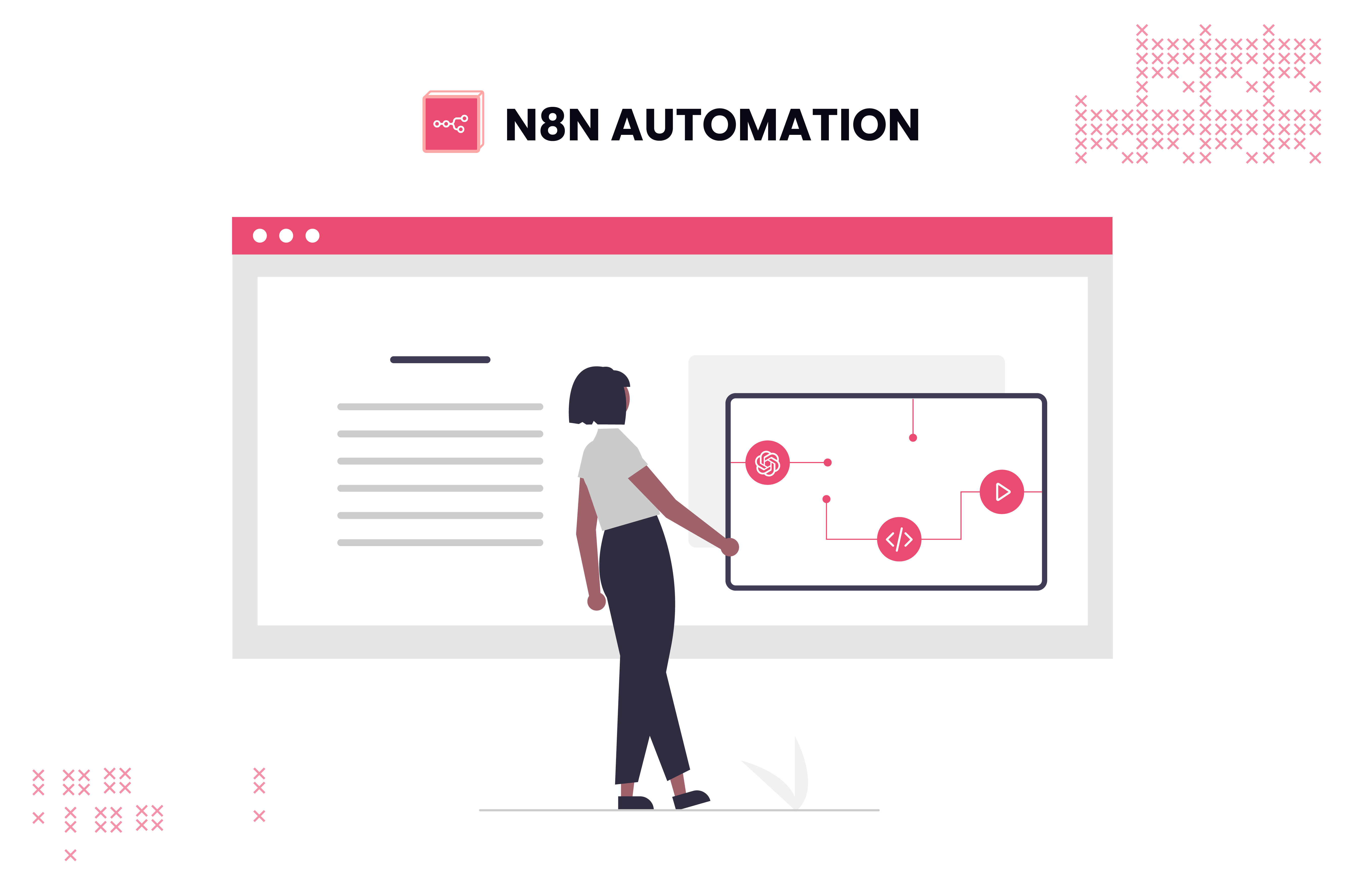.png)
In today's fast-paced real estate industry, providing a seamless and efficient experience for both real estate professionals and clients is paramount. To achieve this, real estate applications need to integrate with various tools and services to offer a comprehensive solution. Whether you're developing a custom real estate application or enhancing an existing one, this blog will guide you through the process of integrating with other tools and services.
In today's digital era, technology plays a crucial role in the success of every business, including the real estate industry. As a real estate professional, you understand the importance of efficiency, organization, and seamless operations. This is where integrating your custom real estate application with essential tools and services becomes essential.
By integrating your custom real estate application with various tools and services, you can enhance productivity, automate tasks, and streamline your operations. This integration allows you to leverage the power of multiple platforms and services, optimizing your business processes and providing a competitive edge.
Integration is important for your real estate business as it brings numerous benefits that contribute to your overall success. Firstly, integration eliminates the need for manual data entry and reduces the chances of errors. By seamlessly integrating your custom application with other tools and services, you can transfer data effortlessly, saving time and minimizing the risk of mistakes.
Furthermore, integration allows you to centralize your data and streamline your workflows. Instead of juggling between multiple platforms and applications, integration enables you to access and manage everything in one place. This not only enhances efficiency but also improves collaboration and communication among team members.
Moreover, integration enables you to leverage the power of specialized tools and services that cater specifically to the real estate industry. By integrating your custom application with these tools, you can take advantage of advanced features such as property listings, marketing automation, lead management, and more. This not only enhances the value you provide to your clients but also helps you stay ahead of your competitors.
Before diving into the integration process, it's important to familiarize yourself with the common tools and services available for real estate businesses. Here are some essential tools and services that you should consider integrating with your custom real estate application:
CRM systems are essential for real estate businesses as they help you manage and nurture your client relationships effectively. By integrating your custom application with a CRM system, you can streamline your lead management, track client interactions, and automate follow-ups. Some popular CRM systems for real estate include Podio,Salesforce, Zoho CRM, and HubSpot CRM. Our company also provides Real Estate CRM services.
Property listing platforms are crucial for showcasing your listings to potential buyers or renters. By integrating your custom application with property listing platforms, you can automatically sync your listings, manage inquiries, and track property performance. Some popular property listing platforms include Zillow, Realtor.com, and Trulia.
Marketing automation tools help you streamline your marketing efforts, ensuring that you reach your target audience effectively. By integrating your custom application with marketing automation tools, you can automate email campaigns, track engagement, and analyze marketing performance. Some popular marketing automation tools for real estate include Mailchimp, ActiveCampaign, and Marketo.
Financial and accounting software is essential for managing your finances, tracking expenses, and generating reports. By integrating your custom application with financial and accounting software, you can automate financial processes, generate accurate reports, and keep your finances organized. Some popular financial and accounting software for real estate businesses include QuickBooks, Xero, and FreshBooks.
Choosing the right tools and services for integration is crucial for the success of your real estate business. Here are some steps to help you make informed decisions:
Start by identifying your specific business needs and goals. Consider the challenges you currently face and the areas where integration can bring the most value. This will help you narrow down the tools and services that align with your business requirements.
Once you have identified your business needs, research and compare the available options. Look for tools and services that are highly rated, have positive customer reviews, and offer the features you require. Consider factors such as ease of use, scalability, customer support, and pricing.
When considering tools and services for integration, evaluate their integration capabilities. Look for platforms that offer seamless integration through APIs or pre-built integrations. Ensure that the integration process is straightforward and well-documented to minimize any potential challenges.
Reach out to fellow real estate professionals or industry experts for recommendations and testimonials. Hearing from those who have already integrated similar tools and services can provide valuable insights and help you make more informed decisions.
Lastly, consider the scalability and future growth potential of the tools and services you choose. Ensure that the platforms can accommodate your business as it expands and that they offer additional features or integrations that you may require in the future.
Now that you have chosen the right tools and services for integration, let's dive into the step-by-step guide to integrating your custom real estate application:
Start by assessing your custom real estate application and understanding its capabilities and limitations. Identify the areas where integration is needed and the data that needs to be transferred between your application and the integrated tools or services.
Research the integration methods available for your custom application and the selected tools or services. Look for APIs, webhooks, or pre-built integrations that facilitate seamless data transfer and interaction between the platforms.
Create accounts or sign up for the selected tools and services. Follow the instructions provided by each platform to set up your accounts, configure your settings, and ensure that you have the necessary permissions for integration.
Configure the integration settings according to your business needs. Follow the integration documentation provided by each platform to establish the connection between your custom application and the selected tools or services. Test the integration to ensure that data is transferred accurately and in real-time.
Customize the integration settings to align with your specific requirements. This may include mapping data fields, setting up data synchronization intervals, or configuring automation rules. Ensure that the integration is optimized for your business processes and workflows.
Train your team on how to use the integrated tools and services effectively. Provide them with the necessary resources, tutorials, and support to ensure a smooth transition and maximize the benefits of integration. Encourage feedback and continuous improvement to further enhance your processes.
Monitor the integration regularly to ensure that it continues to function smoothly. Keep an eye on any error logs or notifications provided by the integrated platforms and address any issues promptly. Continuously optimize the integration settings based on feedback and changing business needs.
Integrating your custom real estate application with essential tools and services brings a wide range of benefits for your business. Here are some key advantages you can expect
Integration eliminates manual data entry, streamlines workflows, and automates repetitive tasks. This saves time and allows your team to focus on higher-value activities, ultimately increasing overall efficiency and productivity.
Integration ensures that data is transferred accurately and consistently between your custom application and the integrated tools or services. This reduces the chances of errors, duplicate entries, and discrepancies, leading to better data quality and decision-making.
By integrating your custom application with specialized tools and services, you can enhance the client experience. Whether it's providing real-time property listings, automating personalized communications, or offering self-service options, integration allows you to deliver a seamless and tailored experience to your clients.
Integration enables you to leverage advanced features and capabilities offered by specialized tools and services. This gives you a competitive advantage by providing value-added services, staying ahead of industry trends, and differentiating yourself from competitors.
Integrating your custom application with scalable tools and services allows your business to grow and adapt to changing needs. As your real estate business expands, integration ensures that your processes and workflows can scale accordingly without hindering your operations.
To assist you in the integration process, here are some valuable resources and tools:
Most tools and services provide developer documentation and APIs (Application Programming Interfaces) that outline the integration process and provide technical guidance. These resources are essential for developers or technical team members involved in the integration.
Integration platforms such as Zapier, Integromat, or PieSync provide a centralized solution for integrating multiple tools and services. These platforms offer pre-built integrations and simplify the integration process, even for non-technical users.
Joining online communities and forums specific to real estate or the tools you are integrating can provide valuable insights, tips, and support. Engage with fellow professionals or experts in these communities to learn from their experiences and stay updated on industry best practices.
If you require assistance with the integration process, consider reaching out to developers or integration partners of the tools and services you are integrating. These partners have expertise in the specific integrations and can provide guidance, development support, and troubleshooting.
Integrating your custom real estate application with essential tools and services is a strategic move that can significantly streamline your business operations. By automating tasks, centralizing data, and leveraging specialized features, integration enhances efficiency, improves data accuracy, and provides a competitive advantage.
Remember to choose the right tools and services based on your specific business needs, evaluate their integration capabilities, and follow a systematic approach for integration. Continuously monitor and optimize the integration to ensure its effectiveness, and provide training and support to your team for a smooth transition.
By embracing integration, you can transform your real estate business, enhance client experiences, and position yourself for long-term success in the dynamic real estate market.

If you're considering workflow automation, you've likely come across n8n — an open source automation tool
Read More%20(1).png)
Learn what a UI/UX designer does, tools used, salaries in Sialkot, and how to switch from graphic design to UI/UX. Guide by Patronecs with workshops.
Read More
Confused between graphic design and UI/UX? This beginner-friendly blog breaks it down simply to help you choose the right path and get started.
Read More